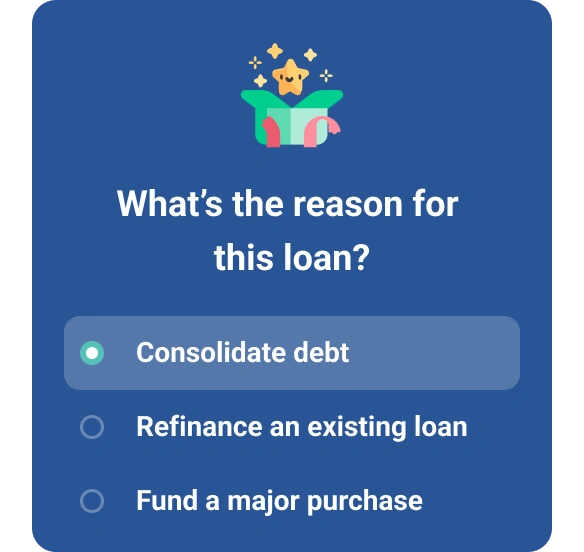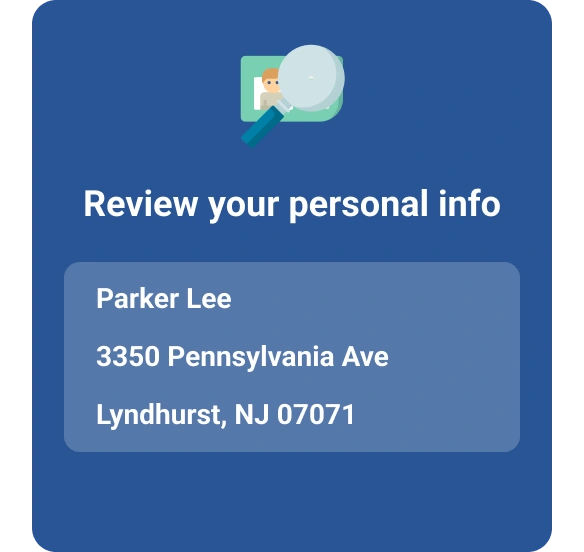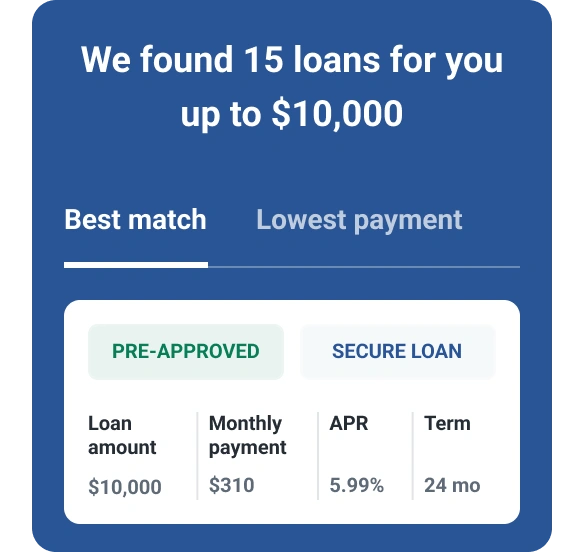Should You Get a Personal Loan With a Bank or Online Lender?

A personal loan can be an easy way to consolidate high-interest credit card debt, pay for an emergency or finance a major purchase. Your bank might offer these loans, but you could also look for offers from one of the many online-only lenders that specializes in personal loans.
You don't need to overthink the decision—your best option may simply be the lender with the most favorable terms—but there are differences between the two types of lenders worth keeping in mind.
The Difference Between Using an Online Lender and Bank
The main differences between getting a personal loan from an online lender or bank comes down to the application experience, lender's focus and (sometimes) what happens behind the scenes.
For example, online-only lenders may offer a more streamlined application as they were created with online borrowers in mind. Some banks have also invested in their online applications and offer fast electronic deposits. But others may require you to visit a branch to finish the application.
Online lenders also often specialize in certain types of loans or borrowers. Some only offer personal loans, have personal loans for specific purposes or focus on borrowers who have bad credit.
In contrast, banks may have a variety of financial products, such as checking accounts, certificates of deposit, mortgages and credit cards. While some banks offer personal loans, they generally aren't the company's focus, and the loans they do offer may be geared toward borrowers with good credit.
Another difference is that the loan you get from a bank is typically issued by the bank itself. This is a contrast with some companies that offer personal loans online that is actually a lending platform or marketplace rather than a lender. Instead of issuing loans themselves, these companies work to connect borrowers with investors or partner banks. While you might not notice this difference, it's one to keep in mind.
You could also look into credit unions if you're interested in a lender that has physical locations. Federally chartered credit unions can't charge more than an 18% interest on their loans, and borrowers tend to receive lower rates from credit unions than banks due to their not-for-profit nature. You'll need to become a member of the credit union before you can take out a loan, but sometimes that's as easy as making a small donation to a partner charity.
Online Lenders vs Banks and Credit Unions
A general overview of the differences might make one option pop out as the best fit for you:
| Online Lenders | Banks and Credit Unions | |
|---|---|---|
| Applying | Built with online applicants in mind | Varies by bank and may require visiting a branch |
| Qualifying | Often depends solely on your creditworthiness | Your history with the bank or credit union could be a factor |
| Credit requirements | Some lenders specialize in working with borrowers who have poor credit | Generally requires good credit |
| Can you meet with someone in person? | No | Yes |
| Are loans limited to current customers? | No | Sometimes |
| Loan amounts and rates | Vary by lender | Vary by lender |
Which Option Is Best?
Deciding which option will work best for you may be a relatively easy decision depending on how you want to approach the process.
- If you want to quickly compare several loan offers: Online aggregator and matching services can show you offers from a variety of online lenders. (Some include loan offers from banks and credit unions as well.)
- If you want to keep all your accounts in one place: Sticking with your current bank or credit union may be the way to go. But keep in mind, there are some mostly online companies that offer bank accounts and personal loans.
- If you want to do business in person: Online lenders may offer phone and chat options, but they don't have physical locations or the personal touch you may get from a traditional bank or credit union.
How to Pick Your Personal Loan Lender
You can get a personal loan from a variety of lenders, and the loan rates and terms you receive may be more important than who lends you the money. Ultimately, with lines blurring as banks create online lending platforms and online lenders expand into banking, the difference between the two options may no longer be huge. As you try to narrow down the options and compare loan offers, consider the following loan details:
- Prequalification: Can you get prequalified for a personal loan with a soft inquiry—the type that doesn't hurt your credit scores? Submitting an application generally results in a hard inquiry, which can ding your credit scores even if you don't get approved.
- Fees: Some lenders charge an origination fee, which can depend on your credit and how much you borrow. You won't get this back, even if you repay the loan early.
- Loan amounts: Will the loan be large enough to cover your expenses? Conversely, you don't want to be forced to take out a larger loan than you need, especially if there's an origination fee.
- Qualification and credit requirements: Lenders may only operate in certain states and have minimum age and credit score requirements. You can check your credit score from Experian for free before you apply.
If you're not sure where to start, you can review our recommendations for the top online personal loan lenders.
View Personalized Loan Offers
Rather than shopping for loan offers lender by lender, Experian helps you compare personal loan offers from partner lenders, including banks and online-only loan providers. Once you sign in and submit a prequalification application with basic information about the loan you need and your finances, Experian gathers and shows you your personalized loan offers. You can then compare their rates, monthly payments and terms to determine which works best for you.
Need a personal loan?
Whether you're looking to eliminate debt or access cash fast, compare personal loan offers matched to your credit profile.
Start now for freeAbout the author
Louis DeNicola is freelance personal finance and credit writer who works with Fortune 500 financial services firms, FinTech startups, and non-profits to teach people about money and credit. His clients include BlueVine, Discover, LendingTree, Money Management International, U.S News and Wirecutter.
Read more from Louis

